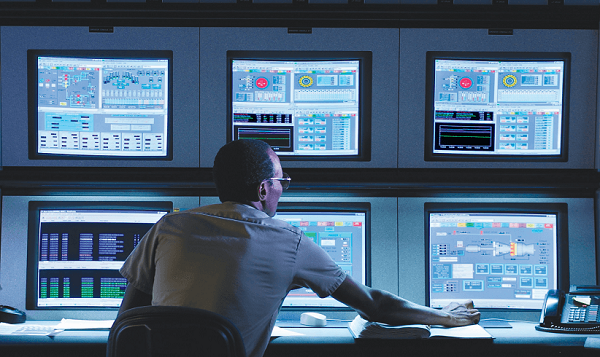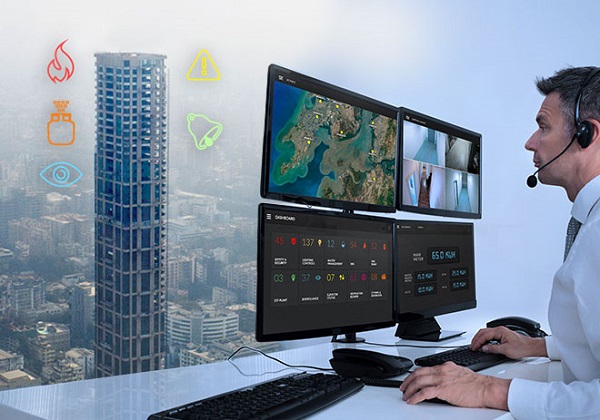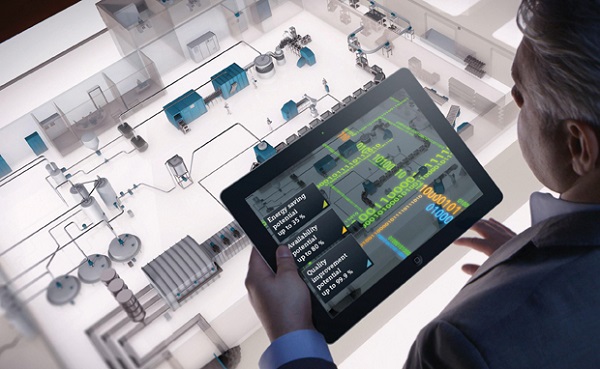Building Management System
The center of the nervous system and brain of buildings
A Building Management System, otherwise known as a Building Automation System, is a computer-based control system installed in buildings that control and monitor the building’s mechanical and electrical equipment such as ventilation, lighting, power systems, fire systems and security systems.
A BMS typically consists of one or more control panels installed within an IT room which are wired to various sensors, valves and switches, etc. within the building. This allows the BMS to monitor and control the building effectively.
Temperatures are monitored by installing sensors. These are of various types, typically an outside air sensor would be installed to monitor the outside temperature. Various room sensors would be installed to monitor and control different zones and immersion/duct sensors would be installed on heating pipes/air handling units to monitor and control the heating/cooling.
Heating valves or duct valves have actuators mounted to them which allow them to be controlled by automatic automatically opening and closing.
Meters can also be monitored to provide information on energy usage including gas, electricity and water, submeters are often installed to determine energy use in specific areas of a building.
Within the BMS control panel, there are controllers that hold the strategy that is used to control the building.
A BMS is the most effective method to monitor and control energy usage within a building. It can control below areas of a building:
At its core, a building management system is most often responsible for controlling the HVAC, heating, and ventilation systems of a building, however, there are other functions too. The main components of a BMS and their basic functionalities are as follows:
- HVAC – control fans & dampers; maintain and monitor a pre-determined air state (in terms of temperature and humidity); control air handling units & fan coil units.
- Heating – control system activity; maintain a pre-determined temperature.
- Ventilation – adjust based on occupancy controls.
- Boiler controls – control boiler activity; maintain a constant temperature.
- Lighting control – set a pattern for lights to switch on/off according to a specified schedule.
- Electric power control – control & monitor core electrical and mechanical equipment.
- Security & observation – control access to the facility; surveillance and intrusion detection.
- Fire alarm system – active alarm locations; smoke control system.
- Elevators – status system; elevator video display.
- Plumbing & water monitoring – control valve operation automatically; monitor temperature deviations; detect hydraulic flows.
Building Management System includes subsystems for managing its various components including:
- System for commercial accounting of heat consumption
- Automatic equipment of Central Heat Supply Station, boiler systems and heating systems
- Cooling stations and refrigeration supply system
- Water supply and plumbing system
- Lightning, electric power supply and uninterrupted power supply system
- Smoke removal, firefighting, etc.
And some more:
- Fire alarm system, fire, and other emergency warning systems
- Security-burglar signaling system
- Access monitoring and control system
- closed-circuit, terrestrial and satellite television
- Structured cable system (SCS)
- Automated Parking
- Other low current systems
Below are some of the benefits of BMS:
- Growing demand for integration of various building controls system to a centralized one
- Increased share of the small-scaled contract
- Reduced contract size due to OEM packaged supply
- BACnet will continue to challenge LON’s share
- The proprietary system will continue to diminish
- Share information to improve building and enterprise performance
- Integrate for the purpose of energy saving
We are prominent solution providers delivering and installing the complete Building Management System with Sensors, Monitoring Equipment, and 24×7 service support.
With such a huge solution portfolio and huge brand value, NTIL is renowned as one of the prominent solution provider and is capable of implementing the entire BMS project to the customer effectively and efficiently. We believe in commitments and our expert knowledge has proven to be an asset for fulfilling our commitments.







